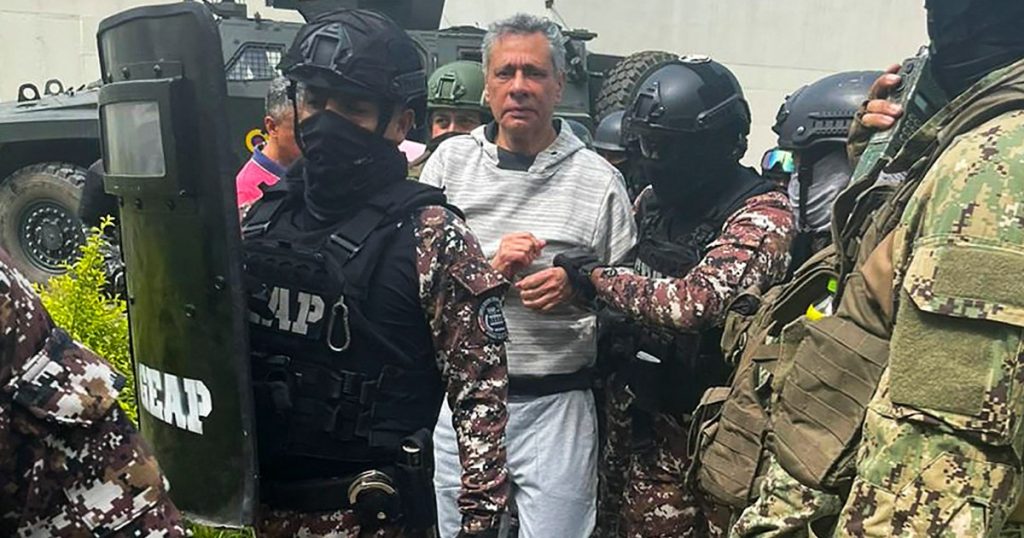The Latin American governments expressed strong condemnation after Ecuador’s security forces stormed the Mexican embassy in Quito to arrest former Vice President Jorge Glas, who had been granted political asylum in Mexico. The incident took place late on Friday night with special forces surrounding the embassy and extracting Glas, who is wanted on corruption charges. Mexican President Andres Manuel Lopez Obrador criticized the arrest, calling it an authoritarian act and a breach of international law. Despite Ecuador arguing that asylum protections were null because of the corruption charges, under international law, embassies are considered sovereign territory, and the Vienna Convention prevents countries from intruding upon them.
The Brazilian government denounced Ecuador’s actions as a violation of international norms and expressed strong disapproval of the seizure of Glas. Colombian President Gustavo Petro emphasized the importance of upholding international law and protecting human rights amid the escalating situation. The United States and United Nations both expressed concern over the raid, urging the two countries to find a resolution in line with international norms. The Organization of American States called for dialogue to resolve the dispute and ensure strict compliance with international treaties, including the right to asylum. The Mexican embassy remained under police surveillance, and Mexican diplomatic personnel were being evacuated from Ecuador following the incident.
Former Vice President Glas, who was vice president under Rafael Correa, was released from prison in November after serving time for receiving kickbacks from Odebrecht. He now faces another arrest warrant for alleged fund diversion following an earthquake in 2016. Glas claims he is a victim of political persecution, which Ecuador’s government denies. Correa, who has been in exile since 2017, criticized the violation of a country’s embassy, stating that not even in dictatorships have such actions been taken. He also alleged that Glas was mistreated during the arrest. The situation has sparked outrage in Mexico, with demonstrations outside Ecuador’s embassy in Mexico City.
The diplomatic fallout from the raid has drawn widespread condemnation from Latin American governments, asserting the need to respect international law and uphold the rights of asylum seekers. The Mexican government’s decision to grant political asylum to Glas has been questioned by Ecuador, leading to tensions between the two countries. The raid on the embassy has raised concerns about the sanctity of diplomatic missions and the potential implications for future asylum cases. The international community, including the United States, United Nations, and the Organization of American States, has called for a peaceful resolution to the dispute and emphasized the importance of respecting diplomatic immunity and international treaties.
The incident has strained relations between Ecuador and Mexico, leading to the expulsion of Mexican diplomatic personnel from Ecuador. The Mexican government has criticized Ecuador’s actions as a violations of international law and an infringement on Mexico’s sovereignty. Asylum seekers, such as Glas, have the right to seek refuge in embassies under international law, and any breach of this protection is a serious violation. The fallout from the incident has raised concerns about the rule of law and respect for diplomatic norms in Latin America, with calls for a peaceful resolution to the dispute. The future implications for political asylum and diplomatic relations in the region remain uncertain as the situation unfolds.


